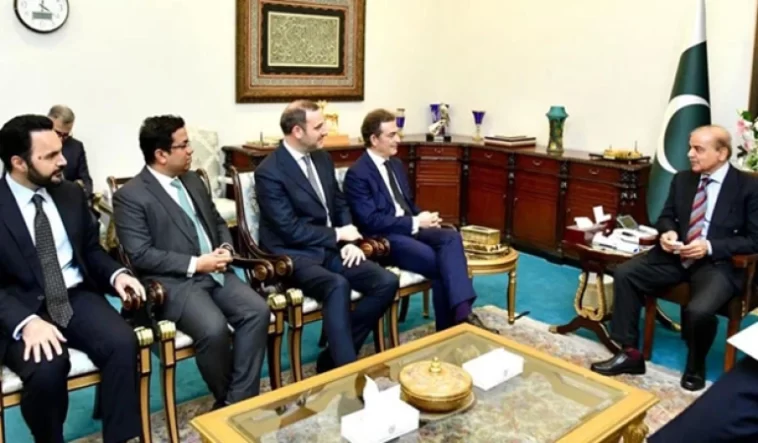The Pakistani Prime Minister, Shehbaz Sharif, met with a delegation from Rothschild & Co in Islamabad on Monday to discuss measures to improve the country’s economy. Despite facing challenges such as natural disasters and the effects of previous mismanagement, the Prime Minister stated that his government has taken concrete and urgent steps to put the economy on track.
According to data from the nation’s central bank, the current account deficit (CAD) fell to $0.2 billion in January 2023, a 90% decrease from the previous year. The rupee’s depreciation, which has slowed imports, was blamed for this decline. In order to access money from an International Monetary Fund (IMF) bailout, the government has also taken fiscal measures that have increased fuel prices by more than a fifth and removed artificial exchange rate ceilings, which has caused the rupee to lose more than a quarter of its value against the US dollar in less than a month.
A delegation from Rothschild & Co praised Pakistan’s skilled labor force and commended the effectiveness of the Pakistan Stock Exchange (PSX) in the region. Additionally, the delegation commended Pakistan’s efforts to raise awareness of the threat of climate change at international forums.
The Finance (Supplementary) Bill 2023, also known as the ‘mini-budget,’ was approved by the National Assembly as a means of resolving all issues related to the $1.1 billion tranche from the International Monetary Fund. A deficit of $11.6 billion in the first seven months of the previous fiscal year was reduced by 67% to $3.8 billion in the first seven months of the current fiscal year.
In order to put the economy on a solid footing, the Prime Minister expressed the determination of his government to cut unnecessary imports while at the same time increasing exports. Although Pakistan’s economy faces many challenges, the delegation affirmed its stability.


